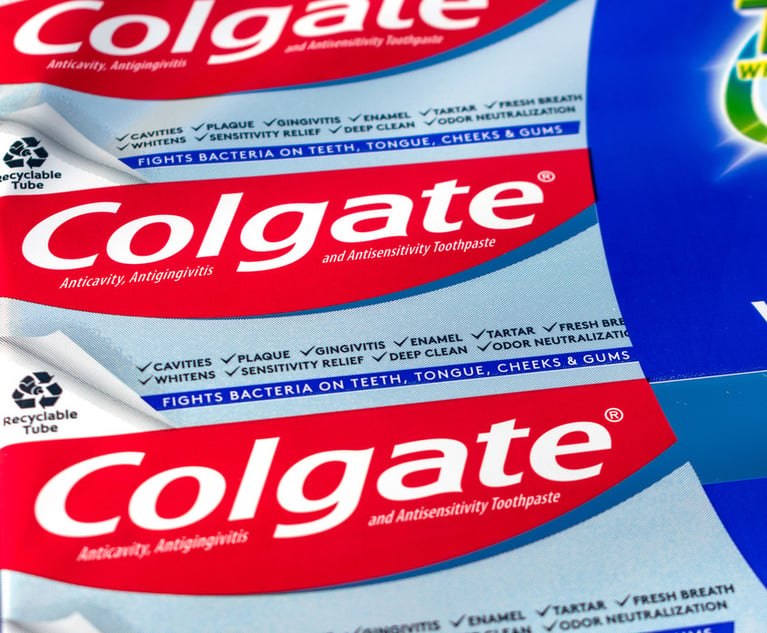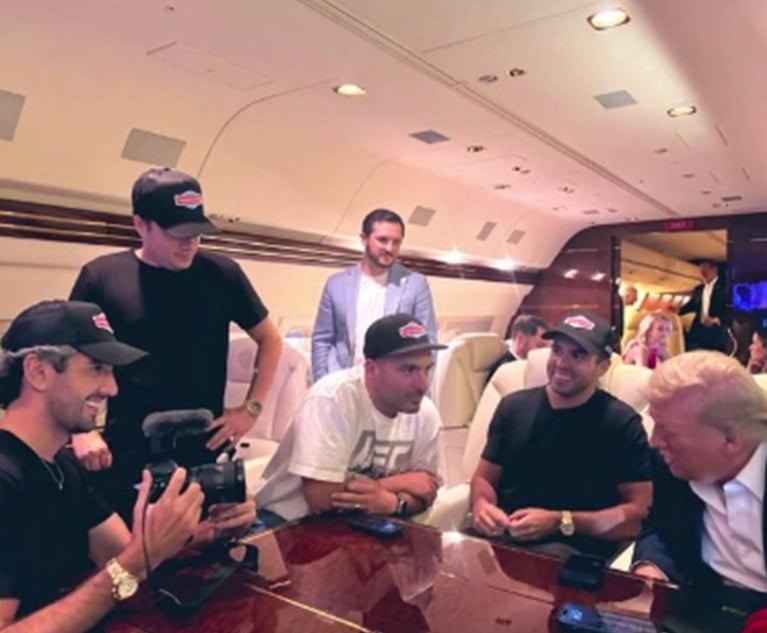Uber Reaches $20 Million Settlement With Drivers Over Classification Dispute
Uber Technologies Inc. and its former CEO have signed onto a $20 million agreement with 13,600 drivers in California and Massachusetts, settling claims that the company misclassified its employees as independent contractors to cut labor costs.
March 12, 2019 at 12:44 PM
4 minute read
 Photo: Shutterstock.com
Photo: Shutterstock.com
Ride-hailing company Uber Technologies Inc. agreed to pay $20 million to a class of drivers in a proposed settlement agreement Monday that could end more than five years of litigation over how the company classifies its drivers.
Uber drivers are considered independent contractors, rather than employees with traditional benefits like minimum wage, overtime and sick pay. But a slew of plaintiffs took issue with this, arguing the company was violating labor law to skirt costs by denying them benefits.
Uber's lawyer Theodore J. Boutrous Jr. of Gibson, Dunn & Crutcher in Los Angeles did not respond to requests for comment before deadline, but the company has denied misclassifying its drivers. Its former CEO Travis Kalanick, whom the plaintiffs sued individually while he was still at the helm, was also part of the tentative agreement awaiting U.S. District Judge Edward Chen's approval.
Uber spokesperson Nick Smith applauded the settlement, saying, “Uber has changed a lot since 2013. We have made the driver experience even better through improvements like in-app tipping, a redesigned driver app and new rewards programs like Uber Pro. We're pleased to reach a settlement on this matter and we'll continue working hard to improve the quality, security and dignity of independent work.”
A hearing on the proposed settlement is scheduled for 1:30 p.m. March 21 before Chen in the Northern District of California.
Plaintiffs class action lawyer Shannon Liss-Riordan of Lichten & Liss-Riordan in Boston is also claiming $5 million in attorney fees for her team. According to the agreement, Liss-Riordan spent 4,500 hours on the case, and her $850-an-hour billing rate totaled more than $3 million.
Under the settlement, Uber drivers clinched another provision: The company will no longer deactivate their accounts if they don't accept enough rides. It will also implement a formal appeals process for those already deactivated, unless they've been dropped for certain reasons, including criminal activity, discrimination, sexual misconduct or safety concerns.
The agreement was aimed at clarifying the deactivation process for drivers, as many felt they could be fired at a moment's notice under rules that were unclear, according to Liss-Riordan.
“I think it's been a little inconsistent, and a lot of drivers have expressed to us their concerns about hearing it out of the blue, and not knowing what they did and not being able to get their head around what happened,” Liss-Riordan said. “This could add some process to it and some transparency.”
Uber also pledged to keep its online policy simple and easy to access, giving drivers advance notice before their accounts are deactivated, and said it will offer “quality courses” to deactivated drivers, who can be considered for reinstatement after completing a course.
Liss-Riordan hopes the settlement could eventually affect the way similar companies write their policies.
“I feel like every case that we do pushes the ball forward a little more, and I know that companies are watching what happens with other companies,” she said.
Read the full settlement agreement:
'It's Too Bad'
This isn't the first settlement proposal the parties have reached. In 2016, Uber agreed to pay $100 million to 385,000 drivers, but the court rejected the plan.
Then came a September 2018 U.S. Court of Appeals for the Ninth Circuit ruling that branded Uber's arbitration clauses enforceable. It meant drivers had to individually arbitrate their claims, but left 13,600 drivers in California and Massachusetts still eligible to sue. According to the agreement, the remaining 13,600 aren't covered by an arbitration clause as they opted out or left no record of acceptance.
Now, fewer drivers will receive larger shares each—about 37 cents per mile driven, according to Liss-Riordan.
While Liss-Riordan said she's happy for the drivers who managed to settle, she's concerned about the ones who couldn't, thanks to the courts' widespread acceptance of arbitration clauses.
“It's too bad that it's just a small slice of the workers we think Uber has violated their rights,” Liss-Riordan said. “Arbitration clauses make it much more difficult for workers to vindicate their rights under the law, and I think that's a big problem. I think the pendulum might start swinging back because I think the companies really took this too far.”
Uber has consistently argued it has every right to enforce arbitration clauses.
Related stories:
Uber's Lawyers Hail Supreme Court's Ruling Against Worker Class Actions
Plaintiffs Lawyers Pressure Lyft to Pay Millions in Arbitration Fees
This content has been archived. It is available through our partners, LexisNexis® and Bloomberg Law.
To view this content, please continue to their sites.
Not a Lexis Subscriber?
Subscribe Now
Not a Bloomberg Law Subscriber?
Subscribe Now
NOT FOR REPRINT
© 2025 ALM Global, LLC, All Rights Reserved. Request academic re-use from www.copyright.com. All other uses, submit a request to [email protected]. For more information visit Asset & Logo Licensing.
You Might Like
View All
Colgate Faces Class Actions Over ‘Deceptive Marketing’ of Children’s Toothpaste

‘Extremely Disturbing’: AI Firms Face Class Action by ‘Taskers’ Exposed to Traumatic Content
5 minute read
Miami Judge Approves Shaq's $11 Million Settlement to Resolve Astrals Investor Claims
3 minute readTrending Stories
- 1Uber Files RICO Suit Against Plaintiff-Side Firms Alleging Fraudulent Injury Claims
- 2The Law Firm Disrupted: Scrutinizing the Elephant More Than the Mouse
- 3Inherent Diminished Value Damages Unavailable to 3rd-Party Claimants, Court Says
- 4Pa. Defense Firm Sued by Client Over Ex-Eagles Player's $43.5M Med Mal Win
- 5Losses Mount at Morris Manning, but Departing Ex-Chair Stays Bullish About His Old Firm's Future
Who Got The Work
J. Brugh Lower of Gibbons has entered an appearance for industrial equipment supplier Devco Corporation in a pending trademark infringement lawsuit. The suit, accusing the defendant of selling knock-off Graco products, was filed Dec. 18 in New Jersey District Court by Rivkin Radler on behalf of Graco Inc. and Graco Minnesota. The case, assigned to U.S. District Judge Zahid N. Quraishi, is 3:24-cv-11294, Graco Inc. et al v. Devco Corporation.
Who Got The Work
Rebecca Maller-Stein and Kent A. Yalowitz of Arnold & Porter Kaye Scholer have entered their appearances for Hanaco Venture Capital and its executives, Lior Prosor and David Frankel, in a pending securities lawsuit. The action, filed on Dec. 24 in New York Southern District Court by Zell, Aron & Co. on behalf of Goldeneye Advisors, accuses the defendants of negligently and fraudulently managing the plaintiff's $1 million investment. The case, assigned to U.S. District Judge Vernon S. Broderick, is 1:24-cv-09918, Goldeneye Advisors, LLC v. Hanaco Venture Capital, Ltd. et al.
Who Got The Work
Attorneys from A&O Shearman has stepped in as defense counsel for Toronto-Dominion Bank and other defendants in a pending securities class action. The suit, filed Dec. 11 in New York Southern District Court by Bleichmar Fonti & Auld, accuses the defendants of concealing the bank's 'pervasive' deficiencies in regards to its compliance with the Bank Secrecy Act and the quality of its anti-money laundering controls. The case, assigned to U.S. District Judge Arun Subramanian, is 1:24-cv-09445, Gonzalez v. The Toronto-Dominion Bank et al.
Who Got The Work
Crown Castle International, a Pennsylvania company providing shared communications infrastructure, has turned to Luke D. Wolf of Gordon Rees Scully Mansukhani to fend off a pending breach-of-contract lawsuit. The court action, filed Nov. 25 in Michigan Eastern District Court by Hooper Hathaway PC on behalf of The Town Residences LLC, accuses Crown Castle of failing to transfer approximately $30,000 in utility payments from T-Mobile in breach of a roof-top lease and assignment agreement. The case, assigned to U.S. District Judge Susan K. Declercq, is 2:24-cv-13131, The Town Residences LLC v. T-Mobile US, Inc. et al.
Who Got The Work
Wilfred P. Coronato and Daniel M. Schwartz of McCarter & English have stepped in as defense counsel to Electrolux Home Products Inc. in a pending product liability lawsuit. The court action, filed Nov. 26 in New York Eastern District Court by Poulos Lopiccolo PC and Nagel Rice LLP on behalf of David Stern, alleges that the defendant's refrigerators’ drawers and shelving repeatedly break and fall apart within months after purchase. The case, assigned to U.S. District Judge Joan M. Azrack, is 2:24-cv-08204, Stern v. Electrolux Home Products, Inc.
Featured Firms
Law Offices of Gary Martin Hays & Associates, P.C.
(470) 294-1674
Law Offices of Mark E. Salomone
(857) 444-6468
Smith & Hassler
(713) 739-1250







